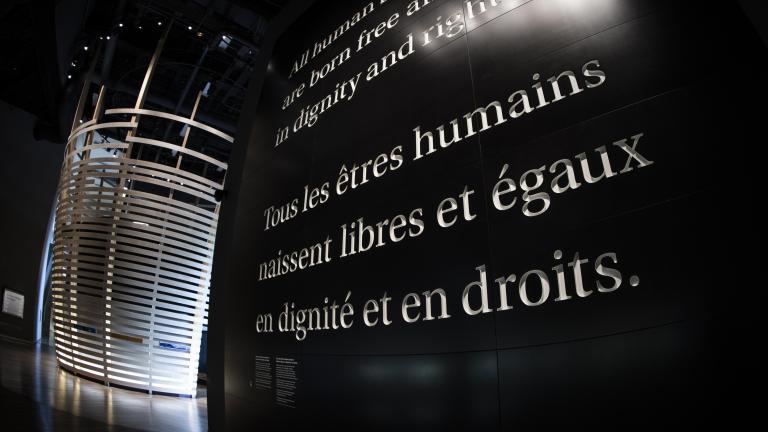This release is more than two years old
This release is more than two years old. For additional information, please contact Amanda Gaudes from our Media Relations team.
News release details
As we mark International Human Rights Day tomorrow, it might feel like we are moving in the wrong direction.
In Winnipeg, calls for action in response to violence against Indigenous women, girls and gender‐diverse people continue to grow as we mourn Rebecca Contois, Morgan Beatrice Harris, Marcedes Myran, Buffalo Woman and so many others. In the United States, reproductive rights are being rolled back. In Iran and around the world, women are demanding to live free and equal. Antisemitism and white supremacy are becoming normalized. The effects of climate change are being felt every day.
These events are reminders that the threat of a world where rights and dignity are up for debate does not sleep.
As a result, it is easy to feel despair or even cynicism. For some, it’s exhausting to feel like we are fighting the same fight, year after year. For others, particularly those who’ve led privileged lives, it’s easy to sentimentalize the past and fall into the trap of imagining a time when people didn’t have to worry about persecution and when we all seemed to get along.
As a human rights lawyer, a woman of colour and the daughter of immigrants, I know personally and professionally that for many, “the good ol’ days” weren’t all that.
Our galleries at the Canadian Museum for Human Rights are full of stories of strength and resilience in the pursuit of human rights. Nelson Mandela. Viola Desmond. Dick Patrick. Malala Yousafzai. Survivors of Indian Residential Schools and other genocides. Their stories are evidence that change requires risk, passion and persistence.
And that we should be careful not to confuse the conflict that happens when people demand justice and respect as a step backward.
Instead, I view those conflicts as signs that our intolerance of injustice is growing. More and more, we are acknowledging our shared humanity and refusing to accept that systemic racism, gender‐based violence, sexism, fascism, ableism and colonialism are inevitable. People are pushing back louder and with renewed energy against injustices that have been centuries in the making. Despite the immense challenges we face, it is a fundamentally hopeful sign for the future.
And that hope is what drives us to keep making a difference and hold fast to the belief that a better tomorrow is possible. We can never stop our work to pursue a future where human rights are protected for everyone. We cannot allow cynicism, despair or apathy to write the next chapters in our story. If we do, that would be the real evidence we were moving in the wrong direction.
This release is more than two years old
This release is more than two years old. For additional information, please contact Amanda Gaudes from our Media Relations team.
